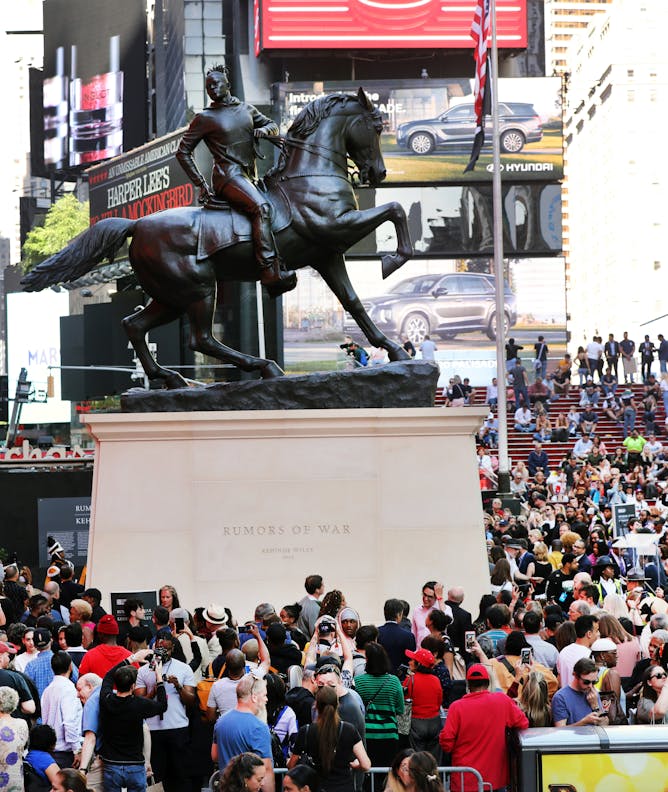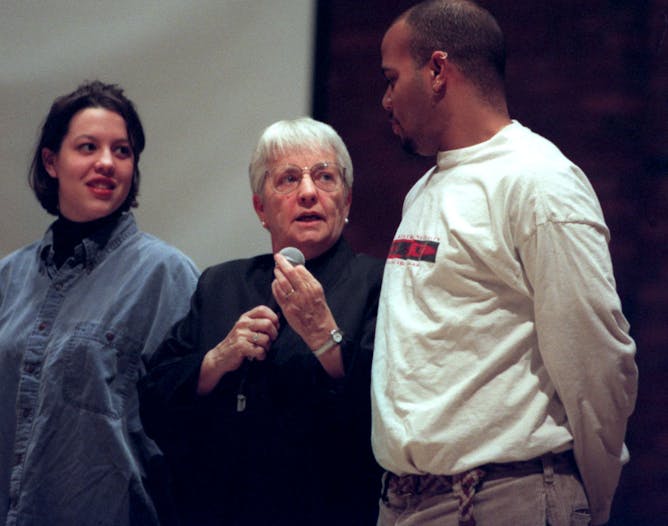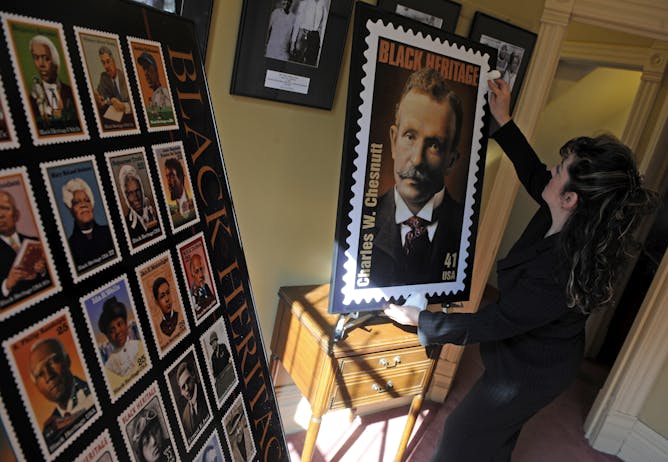The Conversation - Good reads for Black History Month
|
Older messages
Russia's invasion of Ukraine isn't legal – but that may not matter
Friday, February 25, 2022
+ the value of listening to extinct birds' voices; climate jargon primer
How Russia's invasion of Ukraine will hit Americans at home
Thursday, February 24, 2022
+ plastic pollution treaty talks, estimating COVID-19 risk
Russia invades Ukraine – a special newsletter
Thursday, February 24, 2022
Analysis and context from experts on the unfolding crisis in Ukraine
Popular opinion in Russia backs Putin – but that may not last
Wednesday, February 23, 2022
+ tips for navigating a challenging tax season; homeless students
Are farmers seeding trouble in their fields?
Tuesday, February 22, 2022
+ 5 essential reads on Ukraine-Russia crisis
You Might Also Like
A Less-Expensive Vitamin C Serum That Works
Wednesday, March 19, 2025
Rachael Griffiths tried out Clinique's reformulated dark-spot-correcting serum. The Strategist Beauty Brief March 19, 2025 Every product is independently selected by editors. If you buy something
☕ Open discourse
Wednesday, March 19, 2025
DeepSeek chatter at HumanX. March 19, 2025 View Online | Sign Up Tech Brew Presented By Notion It's Wednesday. At HumanX last week, DeepSeek was still a hot topic, specifically for open model
Silencing Voice of America
Wednesday, March 19, 2025
Plus: Soccer in Israel and Palestine, a maybe ceasefire, and Kamala Harris's loss. View this email in your browser March 19, 2025 A man in black walks head bowed down stairs at sunset. Behind him,
Are the people who Trump sent to a Salvadoran prison actually gang members?
Wednesday, March 19, 2025
On March 15, President Trump signed a proclamation invoking the Alien Enemies Act of 1798. ͏ ͏ ͏ ͏ ͏ ͏ ͏ ͏ ͏ ͏ ͏ ͏ ͏ ͏ ͏ ͏ ͏ ͏ ͏ ͏ ͏ ͏ ͏ ͏ ͏ ͏ ͏ ͏ ͏ ͏ ͏ ͏ ͏ ͏ ͏ ͏ ͏ ͏ ͏ ͏ ͏ ͏ ͏ ͏ ͏ ͏ ͏ ͏ ͏ ͏ ͏ ͏ ͏ ͏ ͏
Numlock News: March 19, 2025 • Daredevil, Slugging, Rap Battle
Wednesday, March 19, 2025
By Walt Hickey ͏ ͏ ͏ ͏ ͏ ͏ ͏ ͏ ͏ ͏ ͏ ͏ ͏ ͏ ͏ ͏ ͏ ͏ ͏ ͏ ͏ ͏ ͏ ͏ ͏ ͏ ͏ ͏ ͏ ͏ ͏ ͏ ͏ ͏ ͏ ͏ ͏ ͏ ͏ ͏ ͏ ͏ ͏ ͏ ͏ ͏ ͏ ͏ ͏ ͏ ͏ ͏ ͏ ͏ ͏ ͏ ͏ ͏ ͏ ͏ ͏ ͏ ͏ ͏ ͏ ͏ ͏ ͏ ͏ ͏ ͏ ͏ ͏ ͏ ͏ ͏ ͏ ͏ ͏ ͏ ͏ ͏ ͏ ͏ ͏ ͏ ͏ ͏ ͏ ͏ ͏ ͏ ͏
Deadly Fires in Oklahoma, Astronauts Return, and Rafting Iguanas
Wednesday, March 19, 2025
Oklahoma wildfires killed four, injured at least 200, and destroyed over 400 homes as high winds and storms sparked nearly 150 fires across the state. ͏ ͏ ͏ ͏ ͏ ͏ ͏ ͏ ͏ ͏ ͏ ͏ ͏
☕ Gee Wiz
Wednesday, March 19, 2025
Google makes its biggest acquisition ever... March 19, 2025 View Online | Sign Up | Shop Morning Brew Presented By Miso Robotics Good morning. Home at last! Yesterday evening, NASA astronauts Suni
Misophonia: Beyond Sensory Sensitivity
Wednesday, March 19, 2025
... ͏ ͏ ͏ ͏ ͏ ͏ ͏ ͏ ͏ ͏ ͏ ͏ ͏ ͏ ͏ ͏ ͏ ͏ ͏ ͏ ͏ ͏ ͏ ͏ ͏ ͏ ͏ ͏ ͏ ͏ ͏ ͏ ͏ ͏ ͏ ͏ ͏ ͏ ͏ ͏ ͏ ͏ ͏ ͏ ͏ ͏ ͏ ͏ ͏ ͏ ͏ ͏ ͏ ͏ ͏ ͏ ͏ ͏ ͏ ͏ ͏ ͏ ͏ ͏ ͏ ͏ ͏ ͏ ͏ ͏ ͏ ͏ ͏ ͏ ͏ ͏ ͏ ͏ ͏ ͏ ͏ ͏ ͏ ͏ ͏ ͏ ͏ ͏ ͏ ͏ ͏ ͏ ͏ ͏ ͏ ͏ ͏ ͏ ͏
Microsoft isn't fixing 8-year-old shortcut exploit abused for spying [Wed Mar 19 2025]
Wednesday, March 19, 2025
Hi The Register Subscriber | Log in The Register Daily Headlines 19 March 2025 Microsoft Microsoft isn't fixing 8-year-old shortcut exploit abused for spying 'Only' a local access bug but
FW: Less browsing, more buying
Wednesday, March 19, 2025
Join us on March 20th. Hi there, St. Patrick's Day may be over, but there's still time to strike gold in content strategy! 🌟 Join us this Thursday, March 20th to learn how to craft seamless,



